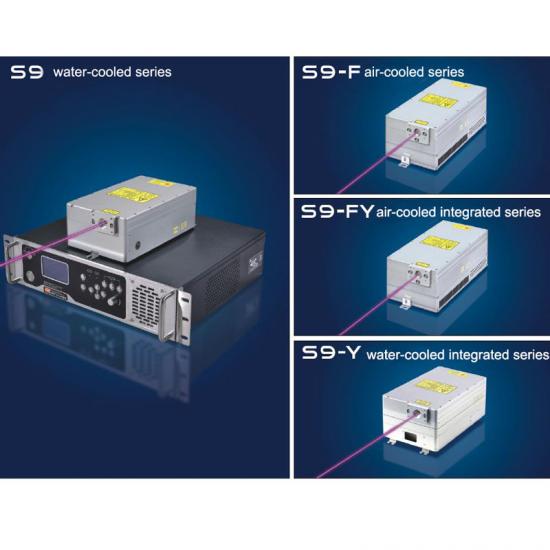Latest Blog
RFH 355nm UV Nanosecond Laser for Acrylic Cutting and Engraving
Jul 22 , 2022RFH 355nm UV Nanosecond Laser for Acrylic Cutting and Engraving
Acrylic, chemical name is polymethyl methacrylate, also known as plexiglass, due to its very high light transmittance (>92%), crystal-like transparency + half the density of glass, not brittle, and easy to dye, Easy to process and other advantages, it is often cut or carved into various shapes for different purposes such as handicrafts, outdoor advertising, protective covers, aquariums, ceiling partitions, etc.
Since the size of the acrylic sheet is generally relatively large, it is necessary to use a tool to cut it into a suitable size. In general, a hook knife can be used to cut the acrylic sheet, and when half cut, the acrylic sheet can be directly broken by hand. It is not easy to cut special shapes such as shapes in one step; or use a saw to cut, but the speed should not be too fast, so as not to cause the acrylic to overheat and melt and deform due to friction; in addition, it can also be cut with a milling cutter, which has the advantage of cutting for specific shapes. The effect is good and the efficiency is high, but it is easy to cause a certain loss.

uv laser | green laser | Ultraviolet lasers | uv dpss laser | nanosecond laser | UV laser source | Solid State Lasers
After years of development, acrylic cutting has now entered the era of laser cutting, and with professional CNC software, its overall degree of automation and processing accuracy are very high, showing strong productivity.
The 355nm ultraviolet light spot is small, and the high-energy (ultraviolet) photons can break the chemical bonds in the material or the surrounding medium. The ultraviolet laser processing process is called the "photo-etching" effect, which causes the material to be destroyed by a non-thermal process, and has a negative impact on the inner surface of the processed surface. The layer and nearby areas do not produce heating or thermal deformation, which can greatly reduce the mechanical deformation of the processed material. It can be regarded as "cold processing", so it can be used for precision cutting and engraving of acrylic, and even for the processing of complex structures near hollow surfaces. and curved surfaces provide convenience.
This is the case with the RFH 355nm UV nanosecond solid-state laser. The output 355nm UV laser has high beam quality (M2<1.2), extremely narrow pulse width (less than 25ns), average power exceeding 30W, and high repetition rate (single pulse). -500KHz), excellent parameters and tuning, enabling high-efficiency acrylic laser cutting efficiency.
It is a pity that such an excellent laser is only used for cutting. In fact, this 355nm UV laser can also be used for acrylic laser engraving operations. By importing specific graphic information and setting specific engraving parameters, a high-energy-density laser beam acts on the surface of acrylic materials to obtain preset engraving. Deep acrylic product. Especially in recent years, the processing of some exquisite handicrafts or collectibles often uses 355nm ultraviolet laser for engraving to achieve very exquisite processing, which provides higher engraving efficiency and better quality upgrade opportunities for the private customization industry of acrylic materials. added value of the product.